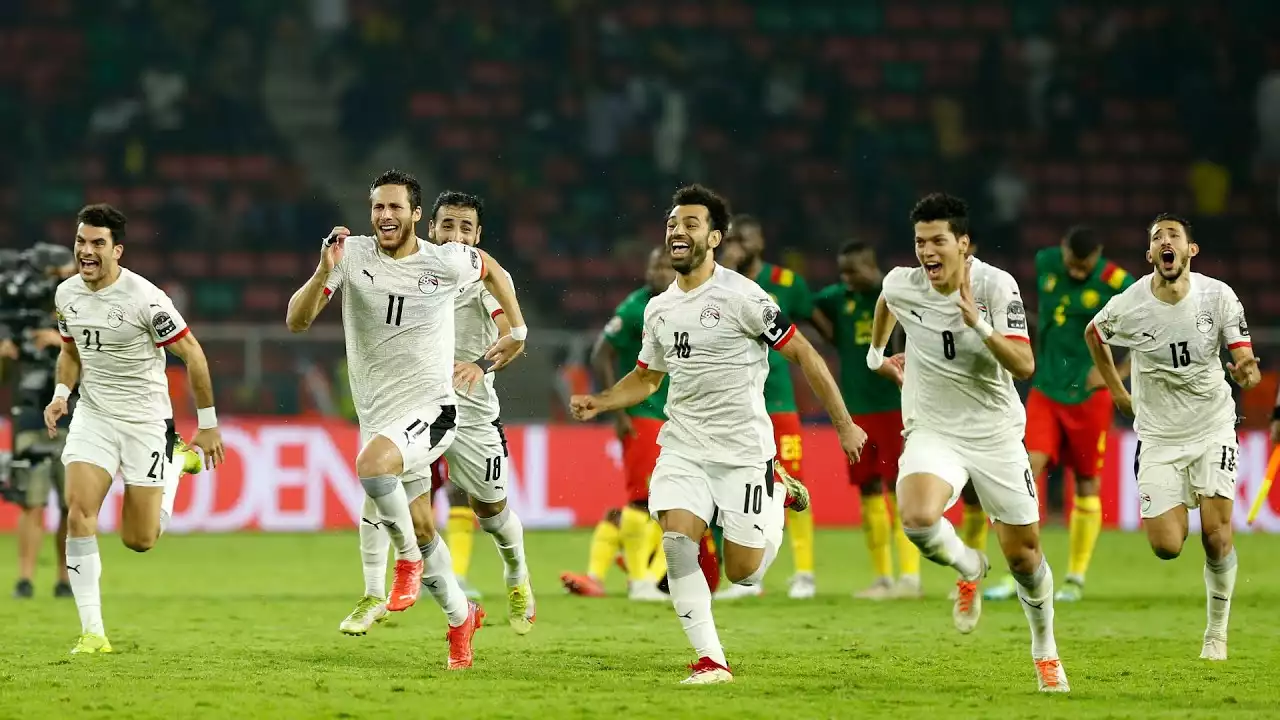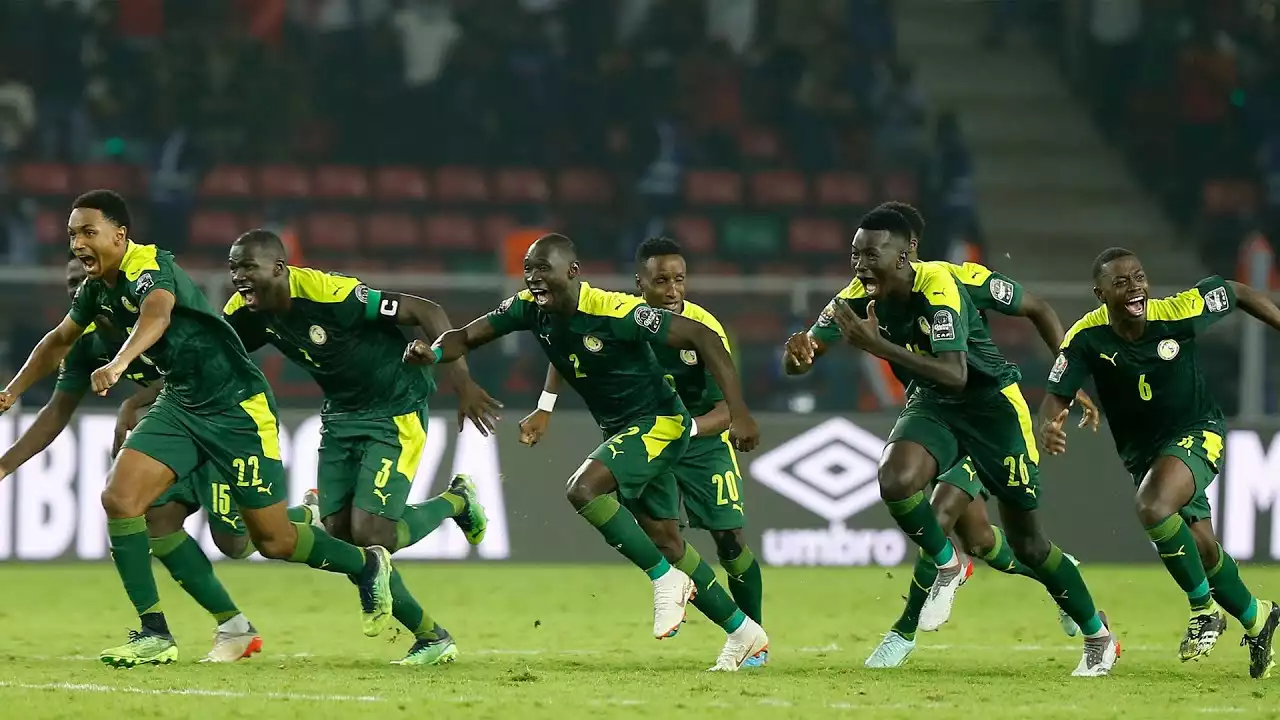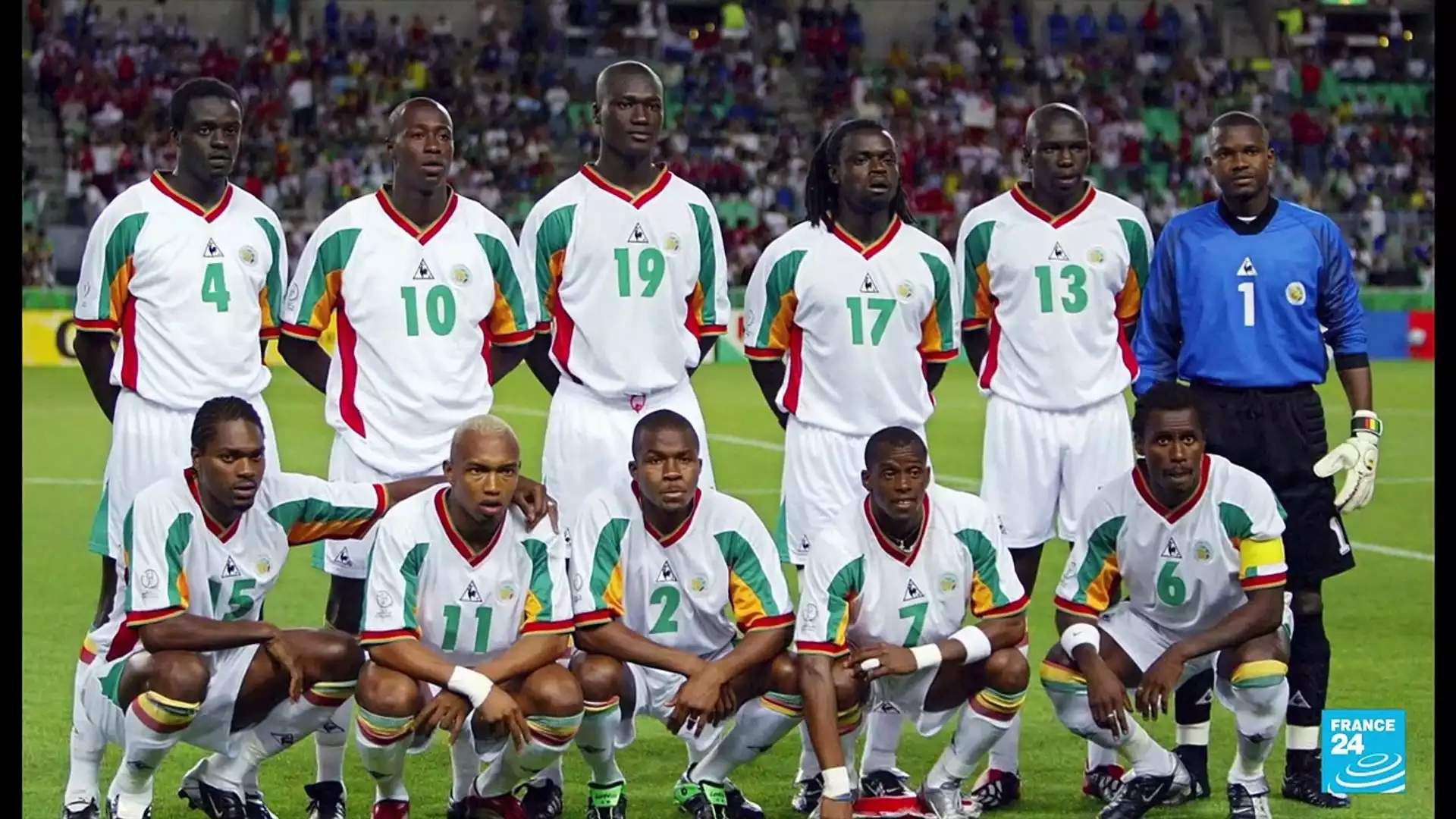Traditional Powerhouses in AFCON
When we think of AFCON, certain countries immediately come to mind. Teams like Cameroon, Nigeria, and Egypt have a long history of success in the tournament. These countries have consistently dominated the competition, with multiple titles to their name. However, in recent years, we have witnessed the rise of unexpected countries that have challenged the status quo.
One such country is Cape Verde. Located off the coast of West Africa, this small island nation has managed to make a name for itself in the AFCON. Despite being a relative newcomer to the tournament, Cape Verde has shown remarkable resilience and skill on the field. Their underdog status has only fueled their determination to succeed, and they have become a force to be reckoned with.
Another traditional powerhouse that has struggled to find its form in recent years is Ivory Coast. Once considered one of the strongest teams in Africa, the Ivory Coast national team has faced numerous challenges in their quest for AFCON glory. However, their rich footballing history and talented pool of players continue to give them hope for a comeback in future tournaments.
Lesser-Known Countries Making an Impact in AFCON
While traditional powerhouses have dominated AFCON for years, there are several lesser-known countries that have managed to make a significant impact on the tournament. These countries may not have the same footballing pedigree as their counterparts, but they have proven that they can compete at the highest level.
Burkina Faso is one such country. Situated in West Africa, Burkina Faso has emerged as a rising star in AFCON. Despite limited resources and infrastructure, the Burkinabe national team has consistently punched above its weight, reaching the finals of the tournament in 2013. Their success can be attributed to a combination of talented players, effective coaching, and a strong team spirit.
Another lesser-known country that has made a historic debut in AFCON is Guinea-Bissau. Located on the west coast of Africa, Guinea-Bissau had never qualified for the tournament until 2017. Their journey to AFCON was filled with challenges, but their determination and passion for the game propelled them to new heights. Guinea-Bissau's participation in AFCON not only brought joy to their nation but also showcased the untapped potential of football in lesser-known countries.
Factors Contributing to the Success of Unexpected Countries
The success of unexpected countries in AFCON can be attributed to several factors. One of the key factors is the underdog spirit that drives these teams to prove themselves on the international stage. With limited resources and support, these countries often face significant challenges in preparing for the tournament. However, their determination and hunger for success push them to overcome these obstacles and perform at their best.
Effective coaching also plays a vital role in the success of unexpected countries. Coaches who understand the strengths and weaknesses of their players, and can devise effective strategies, can have a profound impact on the team's performance. By instilling a winning mentality and fostering a sense of unity, these coaches can transform a group of talented individuals into a cohesive and formidable team.
Lastly, the support and passion of the fans cannot be underestimated. In unexpected countries, football is more than just a sport; it is a way of life. The unwavering support of the fans provides an additional source of motivation for the players, and their cheers can make a significant difference on the field. The passion and enthusiasm of the fans create an electrifying atmosphere that inspires the team to push beyond their limits.
Case Study 1: Cape Verde - The Underdogs Turned Contenders
Cape Verde's rise in AFCON is a remarkable story of determination and perseverance. Despite their small population and limited resources, Cape Verde has managed to establish itself as a formidable force in African football. Their journey to AFCON is a testament to the power of belief and hard work.
The Cape Verde national team first qualified for AFCON in 2013, and their performance in the tournament took everyone by surprise. They defeated several established teams, including Angola and Cameroon, and reached the quarterfinals. Although they were eventually knocked out by Ghana, Cape Verde's performance sent shockwaves through the footballing world.
Since then, Cape Verde has continued to impress in AFCON. Their team is a blend of experienced players who have played in top European leagues and young talents who are eager to make a name for themselves. With their tactical discipline, technical ability, and never-say-die attitude, Cape Verde has proven that size and resources are not barriers to success in football.
Case Study 2: Burkina Faso - Rising Through the Ranks
Burkina Faso's journey to AFCON success has been nothing short of extraordinary. This landlocked country in West Africa has consistently defied expectations and surpassed all odds to make its mark in African football.
Burkina Faso's breakthrough came in the 2013 edition of AFCON, where they reached the finals for the first time in their history. Led by their talismanic captain, Jonathan Pitroipa, Burkina Faso showcased their attacking prowess and defensive resilience throughout the tournament. Although they were narrowly defeated by Nigeria in the final, Burkina Faso's performance earned them widespread acclaim and respect.
Since then, Burkina Faso has continued to impress in AFCON, consistently reaching the knockout stages of the tournament. Their success can be attributed to their strong team spirit, tactical discipline, and the emergence of talented players who have made their mark both domestically and internationally.
Case Study 3: Guinea-Bissau - A Historic Debut
Guinea-Bissau's debut in AFCON in 2017 was a historic moment for the country. After years of struggle and adversity, the Guinea-Bissau national team finally qualified for the tournament, bringing joy and pride to their nation.
Guinea-Bissau's journey to AFCON was a challenging one. The country faced political instability and limited resources, making it difficult to develop a strong footballing infrastructure. However, the determination of the players and the support of the fans propelled Guinea-Bissau to new heights.
Although Guinea-Bissau did not advance past the group stage in their debut tournament, their participation was a significant achievement. It showcased the potential of football in lesser-known countries and demonstrated that with the right support and opportunities, these countries can compete with the best.
Emerging Talents from Unexpected Countries
The success of unexpected countries in AFCON has not only brought attention to the teams themselves but has also highlighted the emergence of talented players from these nations. These players have become beacons of hope for their countries, inspiring future generations to pursue their dreams.
One such player is Garry Rodrigues from Cape Verde. The winger's dazzling performances in AFCON have caught the attention of football fans worldwide. With his blistering pace, skillful dribbling, and clinical finishing, Rodrigues has become a key player for both club and country. His success has opened doors for other Cape Verdean players, who now have the opportunity to showcase their talents on the international stage.
In Burkina Faso, the emergence of Bertrand Traore has been a revelation. The forward, who rose through the youth ranks at Chelsea, has become a vital player for both club and country. His technical ability, intelligence on the field, and eye for goal have made him one of Burkina Faso's most promising talents.
These emerging talents from unexpected countries serve as a reminder that talent knows no boundaries. With the right opportunities and support, players from lesser-known countries can compete at the highest level and leave a lasting impact on the beautiful game.
The Impact of Unexpected Countries on AFCON's Global Appeal
The success of unexpected countries in AFCON has had a profound impact on the global appeal of the tournament. It has challenged the notion that only traditional powerhouses can excel in African football and has opened up new possibilities for teams from lesser-known countries.
The rise of unexpected countries has injected a sense of excitement and unpredictability into AFCON. Fans around the world are now eagerly following the journeys of these underdog teams, hoping to witness more upsets and memorable moments. This increased interest in the tournament has boosted its global viewership and created new revenue streams for African football.
Furthermore, the success of unexpected countries has also increased the diversity and representation in African football. It has provided a platform for lesser-known countries to showcase their footballing talents and has given players from these nations the opportunity to shine on a global stage. This inclusivity has enriched the tournament and strengthened the bonds between African nations.
The Future of AFCON and the Potential for More Surprises
As AFCON continues to evolve, the potential for more surprises and upsets remains high. The success of unexpected countries has shown that football is a sport that thrives on unpredictability and passion. It has shattered preconceived notions and challenged the established order, paving the way for new contenders to emerge.
With the continued growth of football infrastructure and investment in lesser-known countries, we can expect to see more underdog teams making their mark in AFCON. These countries will continue to defy expectations and inspire football fans worldwide with their determination and talent.
As we eagerly await the next edition of AFCON, let us celebrate the achievements of these unexpected countries and embrace the magic of the beautiful game. Let us support the underdogs, cheer for the unsung heroes, and revel in the joy and excitement that AFCON brings. After all, in football, anything is possible.









